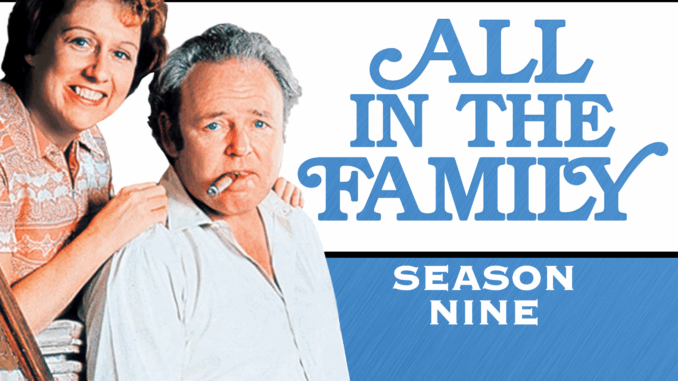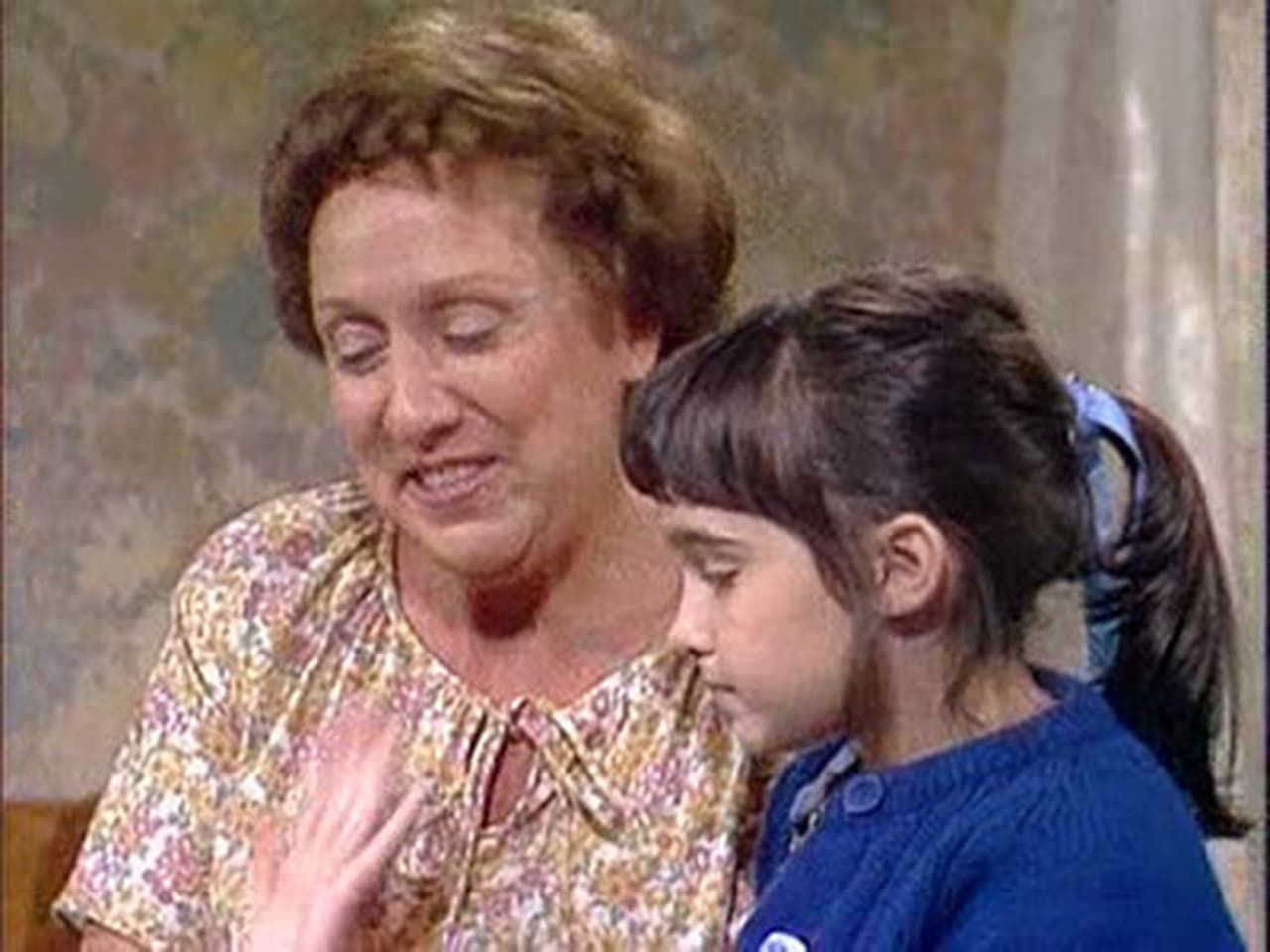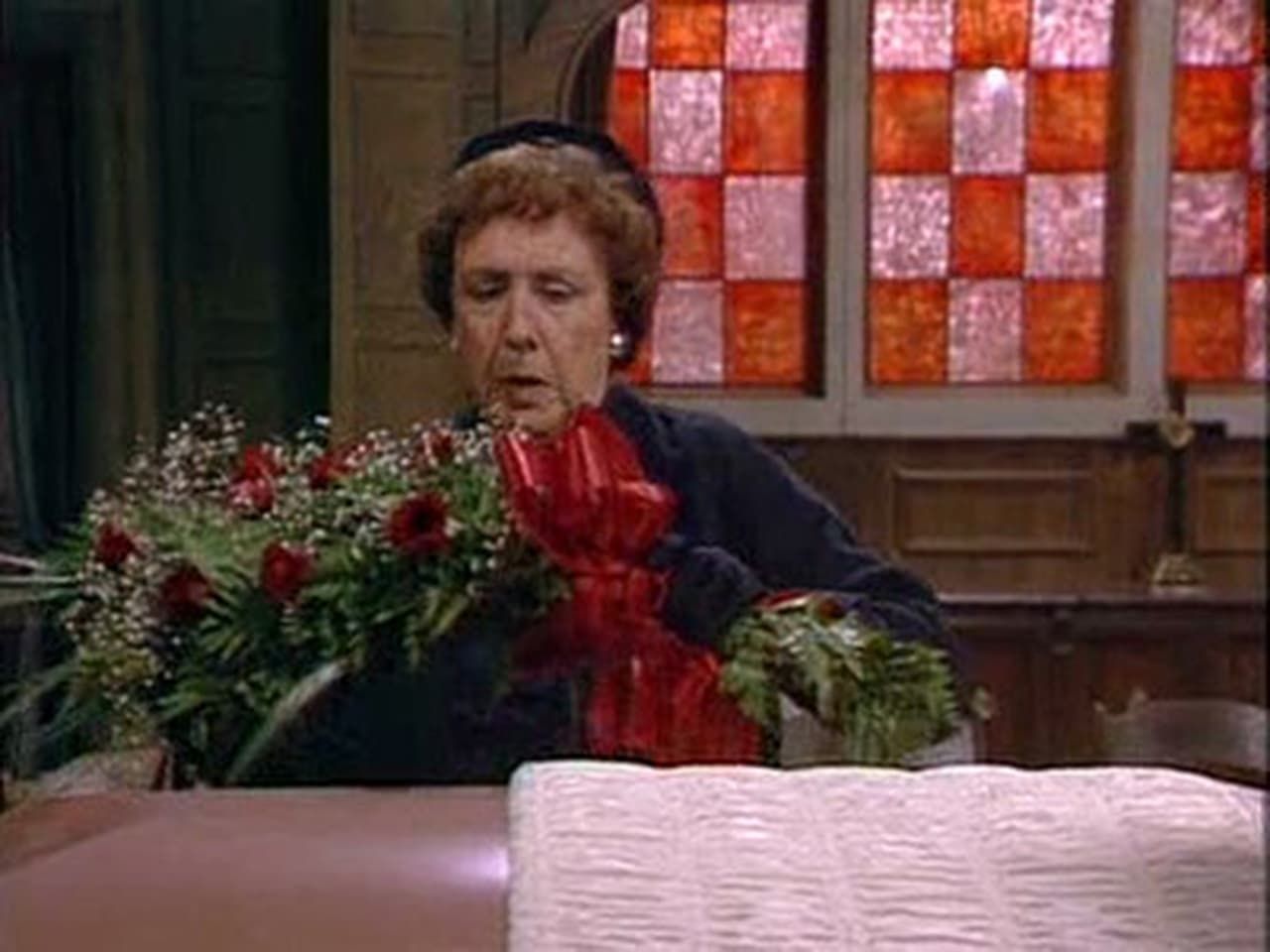
As one of television’s most iconic and groundbreaking sitcoms, All in the Family returned for its ninth and final season in 1978 with the same bold spirit, unfiltered humor, and emotional resonance that had defined it for nearly a decade. Airing from September 24, 1978, to April 8, 1979, the show closed its legendary run with 27 compelling episodes that tackled personal struggles, family transitions, and the changing face of American society. While the show’s humor remained sharp, Season 9 leaned heavily into heartfelt storytelling, providing a poignant and fitting conclusion to the Bunker family’s saga.
A New Chapter Begins: The Arrival of Stephanie
One of the most significant developments in Season 9 was the introduction of Stephanie Mills, played by Danielle Brisebois, who became a central figure in the final stretch of the series. When Edith’s cousin Floyd abandons his young daughter, the Bunkers are left to make a life-altering decision. Despite Archie’s initial gruff resistance, Edith’s compassion prevails, and they take Stephanie into their home. This decision not only shifted the family dynamic but also infused the series with a fresh emotional core, challenging Archie’s long-held beliefs and softening his edges in the process.
Stephanie’s presence breathed new life into the show and gave audiences a renewed look at parenting, generational differences, and the struggles of raising a child in uncertain circumstances. Her integration into the Bunker household added warmth, innocence, and vulnerability, particularly in her tender interactions with Edith, which often highlighted the elder woman’s unwavering empathy.
Health Scares and Existential Fears
Season 9 also explored themes of aging and mortality, particularly through Archie. In one memorable episode, he grapples with a health scare that leaves him fearing the worst after discovering a spot on his liver. His reaction spirals into anxiety and doom, showcasing the character’s vulnerability beneath his famously blustery exterior. As always, Edith is his anchor, offering not only comfort but perspective—reminding viewers of the deep, if unconventional, love shared between the two.
Revisiting the Stivics: A Fractured Family Reunion

Perhaps one of the most poignant moments of the final season came in the two-part Christmas special titled “California, Here We Are” (Parts I & II). The Bunkers travel to California to spend the holidays with Gloria and Mike Stivic, only to discover that their daughter and son-in-law’s marriage is falling apart. What begins as a joyful reunion quickly shifts into an emotionally charged confrontation with unresolved tensions and disillusionment. This storyline marked the last time the original core cast appeared together on screen, making the episodes especially significant for longtime fans.
The fractured Stivic family storyline revealed the ways in which even once-solid relationships can crumble under the pressures of time and differing values. For Archie and Edith, it was a sobering reminder that their daughter was forging a life they couldn’t always control or understand. It also showed that even idealism, as embodied by Mike, wasn’t immune to real-world stress.
Edith’s Silent Strength and Emotional Depth
As ever, Edith Bunker, portrayed by the incomparable Jean Stapleton, remained the series’ emotional heart. Season 9 placed her in a variety of challenging scenarios that allowed her warmth and inner strength to shine. In “Edith Gets Fired,” she grapples with a moral dilemma at her workplace, ultimately choosing principle over convenience. In “A Night at the PTA,” she temporarily loses her voice before a performance, symbolically highlighting how often she had to fight to be heard. These episodes reinforced Edith as more than just a supportive housewife—she was a complex woman of conviction and empathy.
The season’s final episode, “Too Good Edith,” provided a deeply emotional and symbolic farewell to both the character and the series. When Edith becomes ill but tries to hide it to avoid ruining Archie’s birthday, her condition worsens, prompting a rare display of raw, heartfelt concern from her husband. Archie’s quiet bedside plea—filled with fear and regret—served as a moving testament to the show’s enduring capacity for emotional truth. It was the perfect finale: understated, intimate, and deeply human.
Legacy and Cultural Impact
To commemorate the show’s monumental impact, a special retrospective hosted by creator Norman Lear was aired during the season, celebrating the milestone 200th episode. This tribute was more than just a look back—it was a powerful reminder of how All in the Family had changed the landscape of TV comedy. Through the lens of Archie’s stubborn conservatism, Edith’s gentle strength, Gloria’s idealism, and Mike’s passionate liberalism, the show dissected American society while building one of the most iconic television families of all time.
Even in its final stretch, All in the Family remained fearless. Season 9 did not water down its message or seek to leave on a sentimental note. Instead, it leaned into the complexities of life, showing the evolving nature of relationships, the emotional toll of aging, and the growing pains of raising a child. The addition of young Stephanie brought new energy to the Bunker household while highlighting the generational divide in a fresh way. But even with the introduction of new dynamics, the show never lost its emotional core.

Rather than wrapping things up neatly, the final season embraced ambiguity and imperfection. It acknowledged that real families argue, struggle, and change and that love often looks like compromise, sacrifice, and forgiveness. Through laughter and tears, All in the Family remained honest to the very end, reinforcing the idea that television can be both entertaining and socially significant.
In the end, Season 9 offered more than just closure. It offered a moment of reflection—for the characters, the creators, and the millions of fans who had grown alongside the Bunkers. It was a fitting conclusion to a show that had never shied away from uncomfortable truths, choosing instead to confront them head-on, always with humor, humanity, and heart.
Final Thoughts
Season 9 of All in the Family was more than just the closing chapter of a groundbreaking sitcom—it was a poignant farewell to one of television’s most daring, thought-provoking, and emotionally resonant shows. As the series introduced new dynamics with young Stephanie Mills, deepened character arcs, and revisited core relationships, it evolved gracefully while staying true to the humor and humanity that had always defined it.
This final season struck a delicate balance between laughter and sentiment, offering moments of reflection, vulnerability, and warmth. In doing so, it reinforced All in the Family’s place not only as a cultural touchstone, but as a timeless exploration of American life, family bonds, and social change.
For longtime viewers, Season 9 wasn’t just a conclusion—it was a deeply felt goodbye to characters who, for nearly a decade, had become part of their own living rooms, sparking both joy and conversation. It was a farewell worthy of the legacy All in the Family had built honest, heartfelt, and unforgettable.